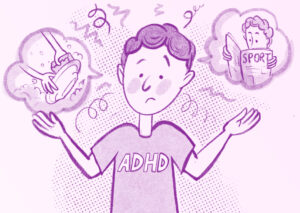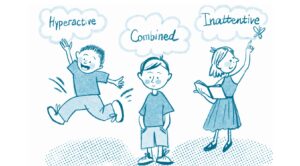Seeking therapy can be a transformative step toward healing and self-improvement, but the question many people face is: Should I choose Individual vs Group Therapy? Both forms have their own unique advantages and challenges, and understanding these differences can help you make an informed decision that best suits your needs.
This blog will guide you through the key features, benefits, and potential drawbacks of individual and group therapy, helping you decide which option aligns with your personal goals, preferences, and mental health concerns.
Table of Contents
ToggleWhat is Individual Therapy?
Individual therapy, also known as one-on-one therapy or personal counseling, involves regular sessions between a client and a trained therapist. It offers a private, confidential space to discuss personal thoughts, feelings, and experiences. The therapist provides tailored support and interventions based on the client’s unique issues.
How Does Individual Therapy Work?
- Sessions typically last between 45 to 60 minutes.
- Therapy focuses entirely on the client’s concerns.
- The therapist may use a variety of techniques, such as Cognitive Behavioral Therapy (CBT), psychodynamic therapy, or mindfulness approaches.
- The pace and content of therapy are personalized.
- It encourages deep exploration of personal history and emotional patterns.
Benefits of Individual Therapy
- Personalized Attention
The therapist can fully focus on your specific challenges and tailor strategies accordingly. - Confidentiality and Privacy
The one-on-one setting offers a safe space to share sensitive or deeply personal issues without fear of judgment. - Flexibility
Sessions can be adjusted to suit your schedule and therapy goals. - Strong Therapeutic Relationship
The bond between you and your therapist can foster trust and provide a consistent support system. - In-Depth Exploration
It’s ideal for those who want to explore complex emotions, trauma, or underlying causes of mental health issues.
Challenges of Individual Therapy
- Cost: Individual sessions tend to be more expensive than group therapy.
- Isolation: It may feel lonely without the peer support found in groups.
- Self-Motivation: Requires active participation and reflection outside sessions.
What is Group Therapy?
Group therapy involves a therapist leading sessions with multiple participants, usually ranging from 5 to 12 members. The group meets regularly, sharing experiences, offering support, and practicing interpersonal skills in a structured setting.
How Does Group Therapy Work?
- Groups often focus on a common issue, such as anxiety, depression, or addiction.
- Sessions include discussions, activities, and exercises.
- Members learn from each other’s perspectives and receive feedback.
- Group leaders ensure a safe, respectful environment.
- Confidentiality is emphasized, though complete privacy cannot be guaranteed.
Benefits of Group Therapy
- Shared Experience and Support
Realizing you’re not alone can reduce feelings of isolation and shame. - Learning from Others
Observing others’ struggles and coping strategies can provide new insights. - Cost-Effective
Group therapy is generally more affordable. - Develop Social Skills
Practice communication, empathy, and assertiveness in a supportive setting. - Accountability
Group members encourage each other’s progress.
Challenges of Group Therapy
- Less Individual Attention
With multiple members, time to focus on your personal issues is limited. - Privacy Concerns
Sharing personal information in a group requires trust and can be intimidating. - Group Dynamics
Conflicts or dominant personalities can affect the experience. - Scheduling
Group sessions are often fixed, offering less flexibility.
Comparing Individual and Group Therapy
| Aspect | Individual Therapy | Group Therapy |
| Privacy | High privacy and confidentiality | Less privacy; requires trust in group members |
| Focus | Personalized, tailored to you | Shared focus; benefits from peer insights |
| Cost | Higher cost per session | More affordable |
| Social Interaction | No social practice component | Opportunities for social skill-building |
| Support | Therapist’s support only | Support from therapist and peers |
| Flexibility | Flexible scheduling | Fixed group schedules |
| Effectiveness | Deep exploration of individual issues | Effective for shared or social issues |
| Suitability | Complex, personal, or private issues | Suitable for social anxiety, addiction, grief, etc. |
Which Therapy Is Right for You Individual vs Group Therapy?
The choice depends on various factors, including:
1. Nature of Your Issues
- If your problems are deeply personal, complex, or trauma-related, individual therapy might be more appropriate.
- If you benefit from social support and learning from others, group therapy can be powerful.
2. Comfort Level
- If you are uncomfortable sharing in a group, individual therapy offers privacy.
- If you feel isolated and want to connect with others facing similar challenges, group therapy helps build community.
3. Budget and Accessibility
- Group therapy is more budget-friendly.
- Individual therapy offers more flexibility but at a higher cost.
4. Therapy Goals
- For skills development like communication or anger management, group therapy can be effective.
- For deep emotional work or self-exploration, individual therapy may be best.
5. Your Personality
- Introverts may prefer the one-on-one setting.
- Extroverts may thrive in group settings.
Can You Combine Both?
Absolutely. Many mental health professionals recommend a combination of individual and group therapy to maximize benefits. For example:
- Individual therapy can provide a safe space for personal reflection and processing.
- Group therapy can offer practice for interpersonal skills and peer support.
What to Expect in Your First Session
Individual Therapy
- The therapist will ask about your history, current challenges, and goals.
- You’ll discuss confidentiality and therapy structure.
- The therapist may suggest a treatment plan or therapy style.
Group Therapy
- You’ll meet the group and facilitator.
- Group rules and confidentiality agreements will be explained.
- Members introduce themselves and share their goals.
- The facilitator guides discussions and activities.
Tips for Success in Therapy
- Be Open and Honest: Transparency helps your therapist tailor treatment.
- Set Realistic Goals: Therapy is a process; progress takes time.
- Commit to Attendance: Consistency enhances outcomes.
- Engage Actively: Participate fully and practice skills outside sessions.
- Give Feedback: Tell your therapist what works or doesn’t.
Final Thoughts
Both individual and group therapy offer powerful tools for healing and growth. The best choice depends on your unique needs, preferences, and circumstances. Whether you choose one or both, the most important step is to seek support and prioritize your mental health.
If you’re unsure where to start, consulting a qualified psychologist like Arpan Sarma can help assess your needs and recommend the best approach tailored for you.





